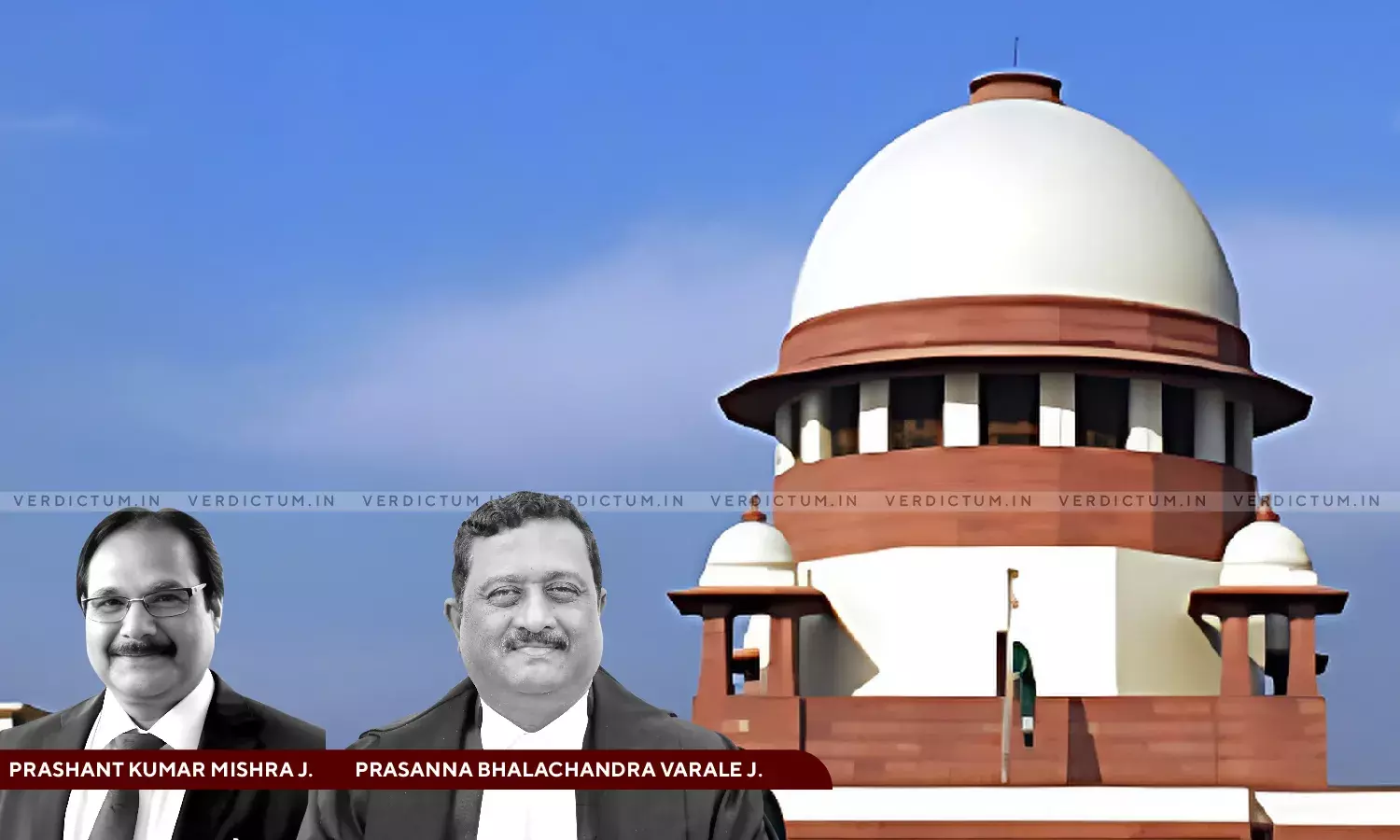Non-Recording Of Reasons For Appointing Officer Junior In Rank As Judge Advocate Invalidates Court Martial Proceedings: Supreme Court
The Supreme Court has observed that non-recording of reasons of appointment of an officer junior in rank as a Judge Advocate in the convening order invalidates the Court Martial proceedings.
The Court had to determine the legality of the appointment of a Judge Advocate at the General Court Martial (GCM) who was junior in rank to the respondent. The respondent, who was serving as a classified Specialist ENT with the army, was accused under Section 57(c) of the Army Act for altering fitness remarks for an army recruit.
A Bench of Justice Prashant Kumar Mishra and Justice Prasanna Bhalachandra Varale observed, “The legal position is thus well settled in Charanjit Singh Gill (supra) that non recording of reasons of appointment of an officer junior in rank as a Judge Advocate in the convening order invalidates the Court Martial proceedings. The High Court has not committed any error of law in holding so in the facts and circumstances of the case.”
Senior Advocate R. Bala represented the appellants, while AOR Jatinder Pal Singh appeared for the respondents.
Following the GCM trial where the charges against the respondent were proven, he was dismissed from service. His appeal before the Armed Forces Tribunal (AFT) was also dismissed.
The respondent challenged the AFT's decision in the Punjab & Haryana High Court arguing that a junior officer was appointed as the Judge Advocate during the GCM. The High Court held that the appointment of a junior officer without recording valid reasons in the convening order was contrary to the law laid down by the Apex Court in Union of India v. Charanjit Singh Gill (2000) wherein it was held that the purpose and object of prescribing the conditions of eligibility and qualification along with desirability of having Members of the Court Martial of the rank not lower than the officer facing the trial was obvious.
Assailing the impugned order of the High Court, the appellant argued that there was no blanket prohibition on appointing an officer of lower rank than the charged officer to serve as Judge Advocate in a GCM.
While the documents submitted by the appellant contained the reasons for appointing a junior as the Judge Advocate, the Supreme Court noted that in the convening order submitted by the respondent, no such reason was mentioned.
“Once dispatched by the officer signing the same, the communication of the document is complete and any alteration in the document is unauthorised,” the Court remarked.
The Court explained that the reason for culling out the exception as held permissible in Charanjit Singh Gill (supra) was not mentioned in the document. “Subsequent mentioning of the reason in the other document, after putting signatures by the issuing authority, was unauthorised and impermissible, the High Court has correctly held that the convening order suffers from incurable defect,” the Court explained.
Consequently, the Court held, “In view of the forgoing discussion, we find no substance in this Civil Appeal which deserves to be and is hereby dismissed.”
Accordingly, the Supreme Court dismissed the appeal.
Cause Title: Union of India & Ors. v. Lt. Col. Rahul Arora (Neutral Citation: 2024 INSC 672)
Appearance:
Appellants: Senior Advocate R. Bala; Advocates Ashok Panigrahi, Ishaan Sharma, Aaditya Shankar Dixit and Annirudh Sharma Ii; AOR Mukesh Kumar Maroria
Respondents: AOR Jatinder Pal Singh; Advocate Reema Chauhan












